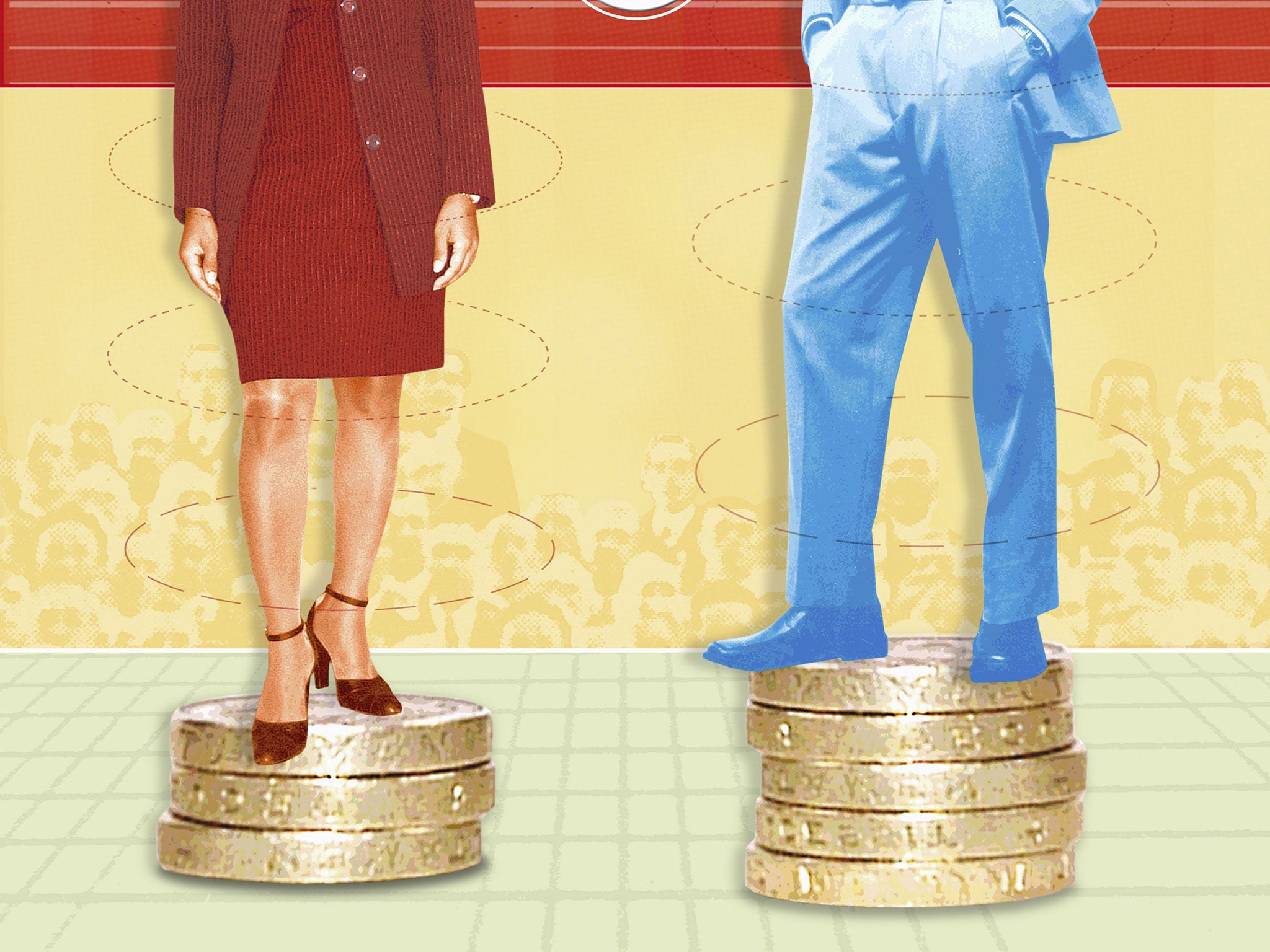Exclusive: Equal pay is ‘60 years away,’ claims new research
Labour to promise legislation to ensure that men and women are paid equally

Labour is to place a commitment to equalise pay between men and women at the heart of its manifesto for the next election, The Independent has learnt.
The party is understood to view the issue of equal pay as “unfinished business” from the last time it was in power and is keen to capitalise on David Cameron’s “women problem”, with polls showing he does not connect well with female voters.
Today Labour will go on the attack on the subject, publishing figures showing that the pay gap between the sexes began to widen again in 2013, reversing years of progress. The gap has closed by an average of just 0.31 per cent a year under the Coalition, the figures show – slower than when Labour was in power, when it closed by an average of 0.55 per cent annually.
The figures, based on an analysis by the House of Commons Library, show that in 1997 the pay gap between men and women was 27.5 per cent. Over the intervening years it has narrowed steadily – but in 2013 it rose for the first time, from 19.6 per cent to 19.7 per cent.
Labour believes that the Conservatives are weak on the issue of equal pay and are keen to make it a dividing line between the parties. A senior party source said: “It’s very likely to be something that we will address in the manifesto.”
The gender pay gap currently stands at 19.7 per cent, with women earning only 80p for every £1 earned by men. At the current rate of progress, Labour says, it would take women more than 60 years to achieve financial equality with men – more than a century since the promise of equal pay was first made in Labour’s Equal Pay Act of 1970.
A senior Labour figure said equal pay was viewed within the party as “unfinished business”. They said: “There are certain areas which most people recognise we should’ve addressed in Government. We made huge strides on gay rights, but equal pay was one of the things that got neglected. We mustn’t let the opportunity go to waste again.”
Britain’s gender pay gap remains high due to huge pay discrepancies between men and women in senior roles. A much larger proportion of women are also in part-time positions, which are subject to lower pay and poorer career prospects.
Last month, the Liberal Democrats announced that they would be including a commitment in their manifesto to require all businesses with more than 250 employees to measure and publish information on their gender pay gaps, in an attempt to shame large firms into action.
The policy was included in the Equality Act 2010, which was passed by the Labour government just before the last general election, but the section referring to it was later shelved by the Coalition. Labour is expected to resurrect the policy in its manifesto for 2015.
Equal pay campaigners said the figures should act as a “wake-up call” for the Government. Daisy Sands, head of policy and campaigns at the Fawcett Society, which campaigns for women’s equality and rights, said: “The gap in pay between women and men is a key measure of economic inequality between the sexes. News that the gap has begun to widen, after years of slow but steady progress, is a damning indictment of the Government’s record when it comes to women’s standing in the economy. Women’s position in the labour market and their wider financial security are at grave risk.”
Frances O’Grady, the general secretary of the TUC, said: “It is a scandal that four decades after the Equal Pay Act, women still earn on average £5,000 a year less than men. This pay gap can add up to hundreds of thousands of pounds over the course of a woman’s working life. We need to see a much tougher approach in the next parliament so that future generations of women don’t suffer the same penalties.
“All companies should be properly transparent about how they pay staff. Compulsory pay audits would give employers the information they need to take closing the pay gap seriously.”
Nicky Morgan, Education Secretary and Minister for Women and Equalities, said: “We are pleased that the overall trend on the gender pay gap continues downwards. The gap for full-time workers under 40 is now almost zero and it continues to narrow for the over 40s. However, I am clear that it remains too high and I'm committed to reducing it more.
“That’s why the steps we’ve taken have gone far further than the last Government – by giving employees the right to request flexible working as well as introducing Tax Free Childcare and shared parental leave from 2015 so that women can make the right choice for them about how to balance work and families.”
Join our commenting forum
Join thought-provoking conversations, follow other Independent readers and see their replies
0Comments